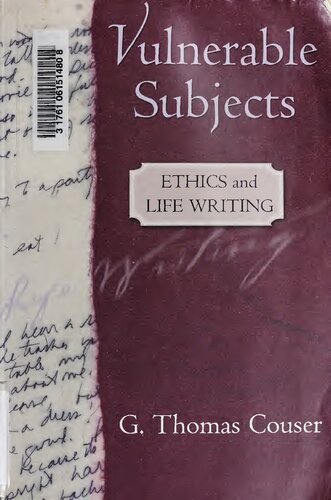

Most ebook files are in PDF format, so you can easily read them using various software such as Foxit Reader or directly on the Google Chrome browser.
Some ebook files are released by publishers in other formats such as .awz, .mobi, .epub, .fb2, etc. You may need to install specific software to read these formats on mobile/PC, such as Calibre.
Please read the tutorial at this link: https://ebookbell.com/faq
We offer FREE conversion to the popular formats you request; however, this may take some time. Therefore, right after payment, please email us, and we will try to provide the service as quickly as possible.
For some exceptional file formats or broken links (if any), please refrain from opening any disputes. Instead, email us first, and we will try to assist within a maximum of 6 hours.
EbookBell Team

4.3
88 reviews"My primary concern is with the ethics of representing vulnerable subjects―persons who are liable to exposure by someone with whom they are involved in an intimate or trust-based relationship, unable to represent themselves in writing, or unable to offer meaningful consent to their representation by someone else.... Of primary importance is intimate life writing―that done within families or couples, close relationships, or quasi-professional relationships that involve trust―rather than conventional biography, which can be written by a stranger. The closer the relationship between writer and subject, the greater the vulnerability or dependency of the subject, the higher the ethical stakes, and the more urgent the need for ethical scrutiny."―from the Preface
Vulnerable Subjects explores a range of life-writing scenarios-from the "celebrity" to the "ethnographic"―and a number of life-writing genres from parental memoir to literary case studies by Oliver Sacks. G. Thomas Couser addresses complex contemporary issues; he investigates the role of disability in narratives of euthanasia and explores the implications of the Human Genome Project for life-writing practices in any age when many regard DNA as a code that "scripts" lives and shapes identity. Throughout, his book is concerned with the ethical implications of the political and economic, as well as the mimetic, aspects of life writing.